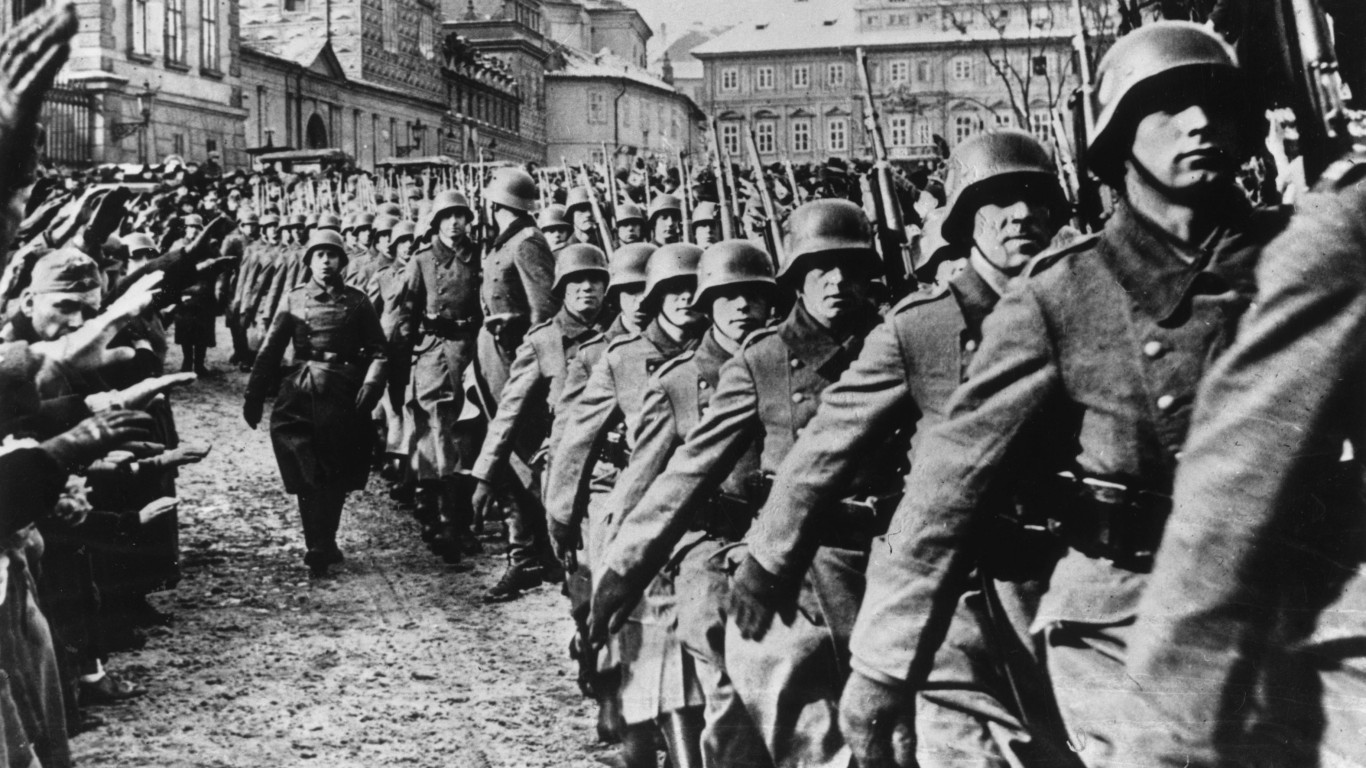
Amid the ongoing U.S. culture war surrounding race and transgender issues, there has been a marked increase in demands by conservative groups to remove from schools and public libraries any books that express tolerance for LGBTQI+ people or tackle the issue of historical racism in the United States.
The American Library Association documented more than 1,200 demands to censor library books and other resources last year, the highest since the organization began tracking this data more than 20 years ago and nearly double the 729 demands recorded in 2021. And the ALA says its records represent only a snapshot of literary censorship, since many book challenges go unreported. (These are the 25 most banned books in America.)
Books have been targets of bans since long before the invention of the printing press. Plato famously lobbied to ban Homer’s “The Odyssey” for delving too far into fiction. But in modern times, the most infamous attack on freedom of thought began on May 10, 1933, amid the ascent of Adolf Hitler and Germany’s Third Reich, when fascist Nazi thugs pillaged 34 German university libraries and burned more than 25,000 books in giant bonfires. Works by Jewish authors, including Albert Einstein and Sigmund Freud, went up in flames. (Today Germany is one of the best countries for press freedom according to Reporters Without Borders.)
Click here to read about 9 American authors whose books were burned by the Nazis
The Nazis also targeted works perceived to promote Marxism and social liberalism, as well as works with sexual innuendo that were deemed un-German. Among these books were works by American authors.
To identify nine American authors whose books were burned by the Nazis in 1933, 24/7 Tempo reviewed records from the United States Holocaust Memorial Museum’s Holocaust Encyclopedia, the Brooklyn Jewish Center, the American Library Association, and other sources. We focused only on books that were collected and burned in 1933, rather than a more extensive list of books that were banned from German libraries throughout the 1930s.
The Nazis had particular disdain for muckraker and leftist political activist Upton Sinclair, whose works they abhorred because they addressed class struggle and the plight of immigrant workers.
Books by 19th-century American poet Walt Whitman were also burned, in his case for references to sex and same-sex relationships – the same reason his works were censored in the U.S. in the late 1800s. Similarly, Theodore Dreiser’s “An American Tragedy” was consigned to the flames in 1933 for what the Nazis considered depictions of a “low love affairs,” according to the ALA.
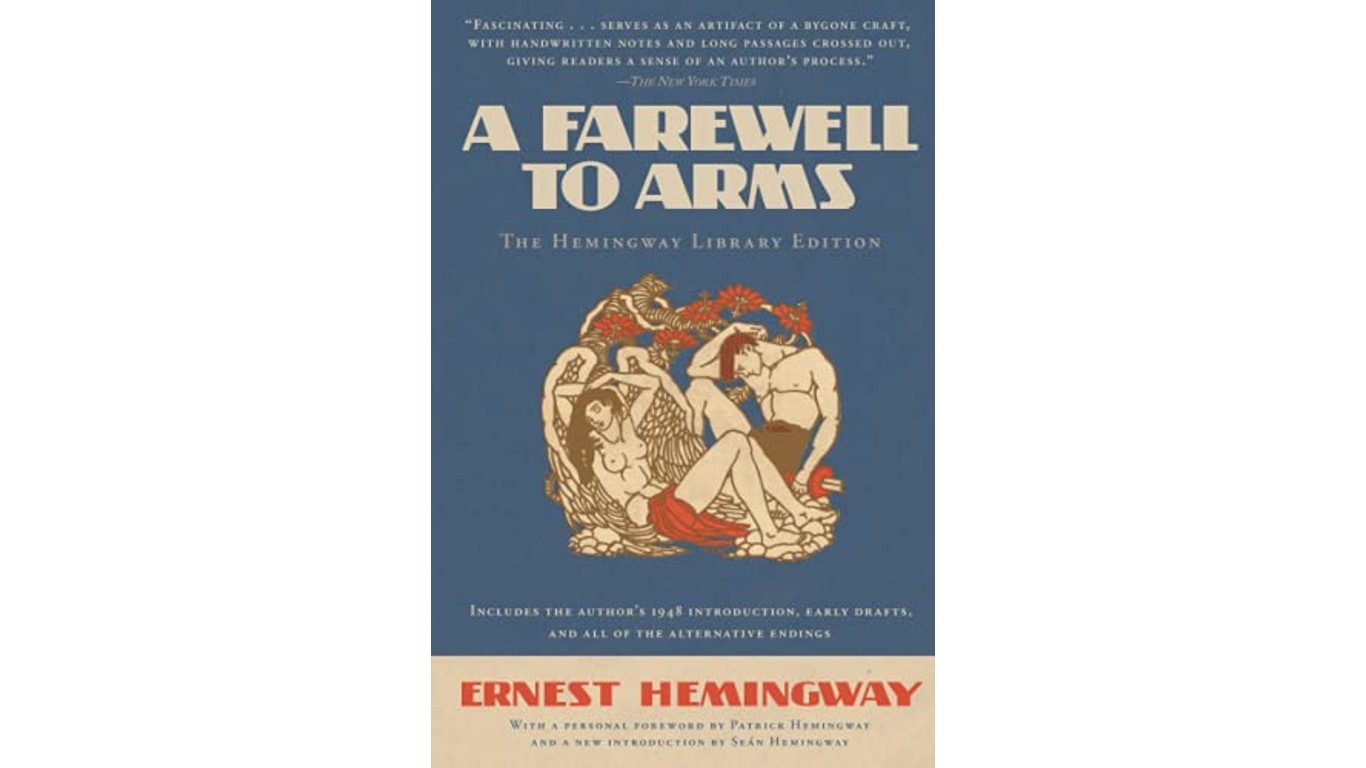
“A Farewell to Arms,” by Ernest Hemingway
Published in 1929, “A Farewell to Arms” is a first-person account of an American lieutenant serving in the Italian ambulance corps during World War I, partially inspired by Hemingway’s own experiences. The Nazis and Italian fascists despised the novel’s depictions of the violence and absurdity of war, descriptions of Italian defeat on the battlefields of the Great War, and implicit sexual content. The novel is widely acclaimed for its gritty realism and parsimonious use of adjectives that characterizes Hemingway’s self-described less-is-more “Iceberg Theory” of writing, which held that the meaning of a story should lurk beneath its surface.
[in-text-ad]
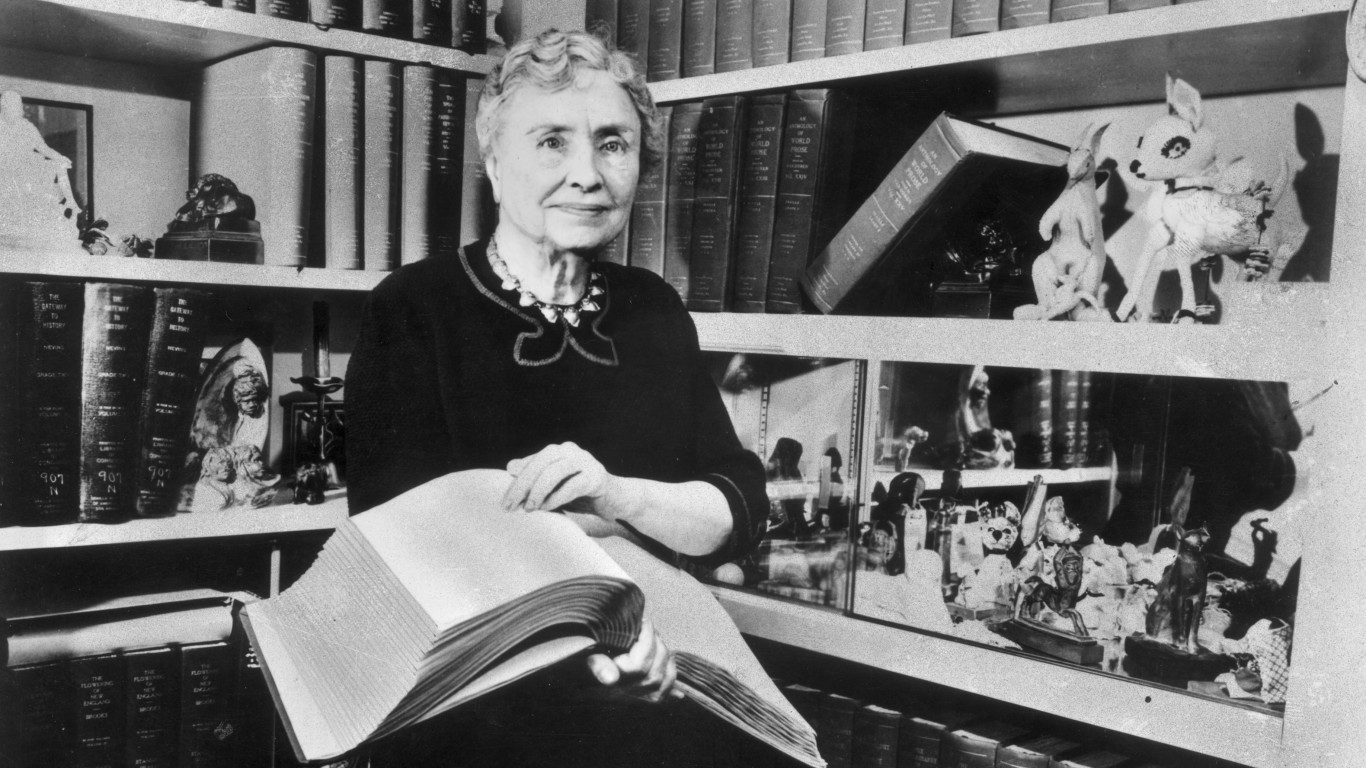
Various works by Helen Keller
Best remembered as the first deafblind person in America to earn a Bachelor of Arts degree (at Radcliffe College) and a longtime activist with the American Foundation for the Blind, Keller was also a prolific writer and a member of the Socialist Party. Through her writing – including an essay called “How I Became a Socialist, appearing in the New York Call, a Socialist daily, in 1912 – Keller argued for the implementation of a fairer, more equitable society, and the Nazis targeted her for her leftist views and anti-war sentiments. They also opposed her activities as an advocate for the disabled, which contradicted Nazi eugenics theories.
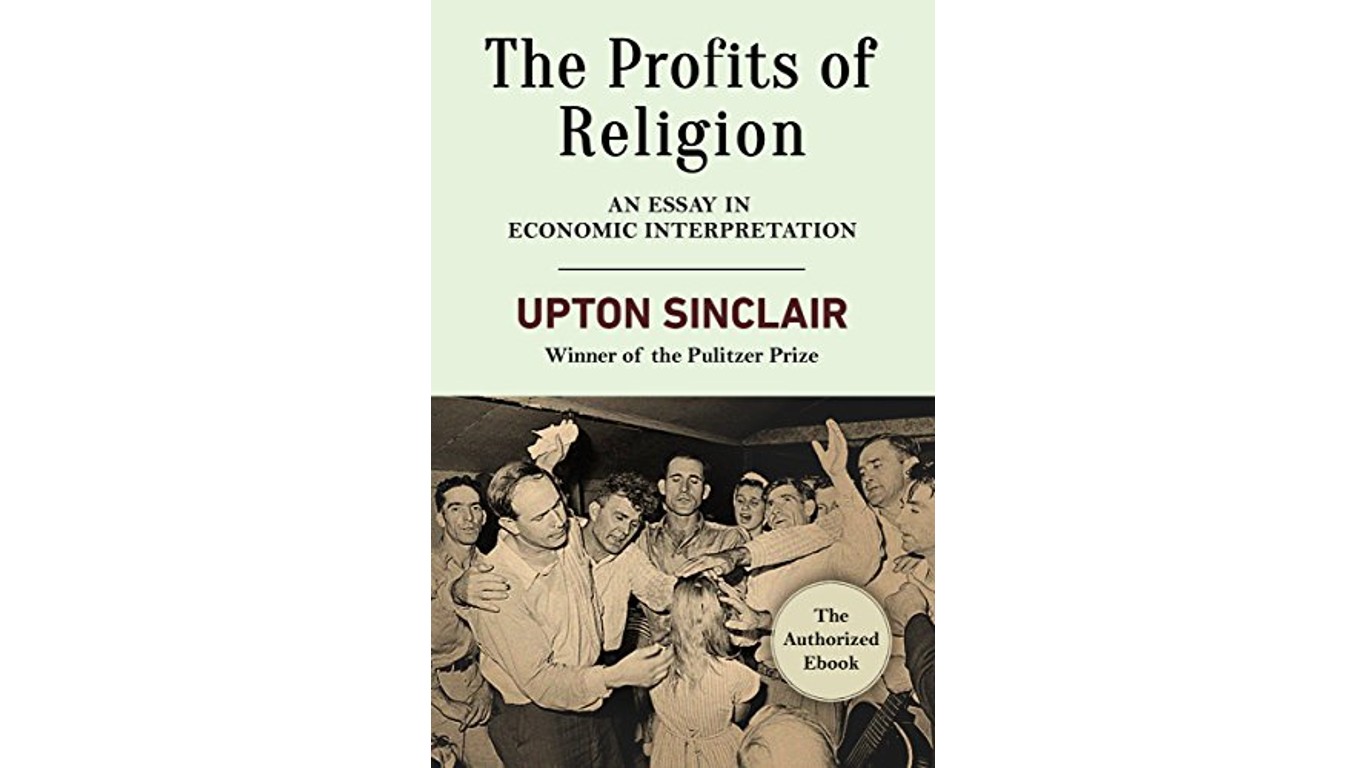
“The Profits of Religion: An Essay in Economic Interpretation,” by Upton Sinclair
“The Profits of Religion,” a nonfiction book first published in 1917, is the first of six books in his “Dead Hand” series, criticizing American institutions. It’s a harsh attack on the nation’s religious organizations, which Sinclair called “the natural ally of every form of oppression and exploitation.” Sinclair, was a prominent socialist at the time, which encouraged Nazi students to pillage libraries searching for his works to turn into ashes in May 1933.
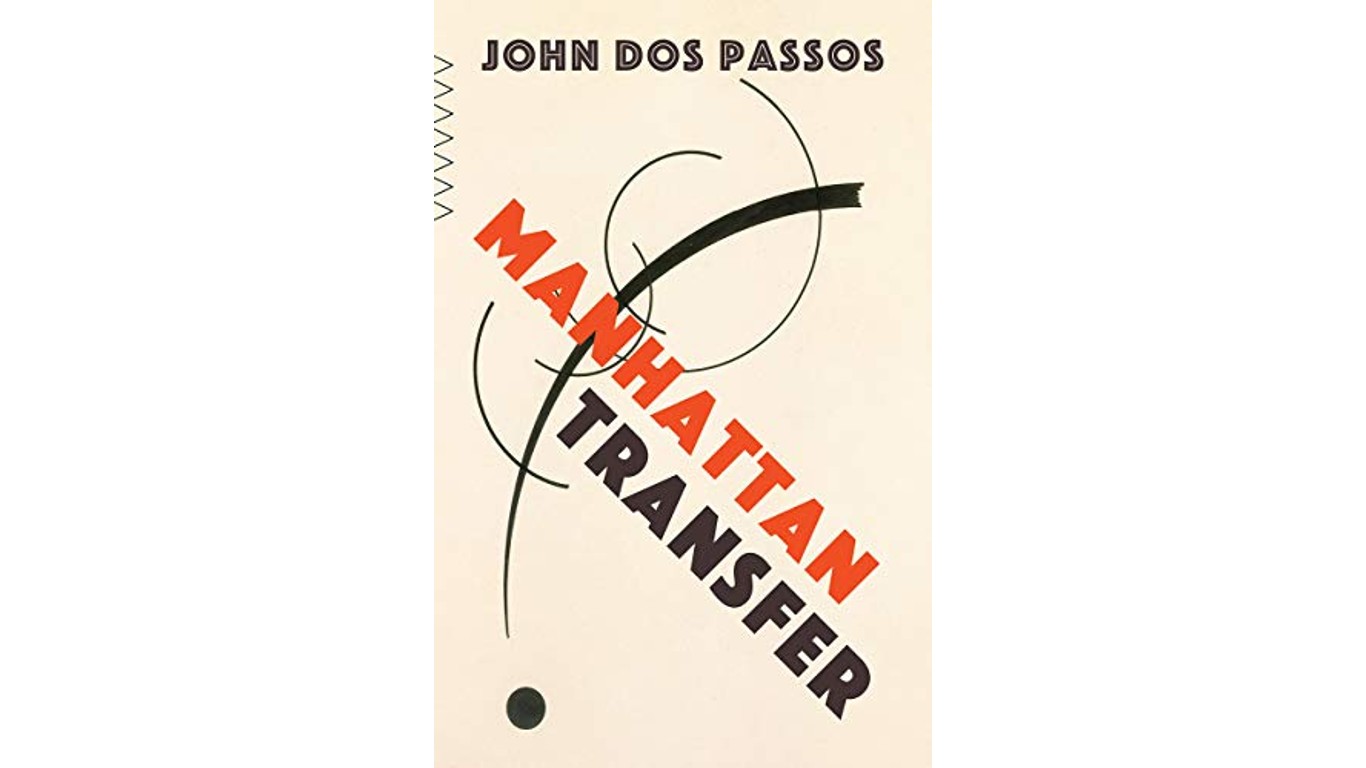
All works by John Dos Passos published before May 1933
Dos Passos wrote about the lives of ordinary people living in America during the early 20th century. One of his most important novels, “Manhattan Transfer” (1925), paints a vivid mural of New York City in the decades before and after the turn of the century, told through overlapping stories of characters from different backgrounds. Dos Passos earned the ire of the Nazis for his Communist sympathies and his critical depictions of war based on his experience as an Army medic during World War I.
[in-text-ad-2]
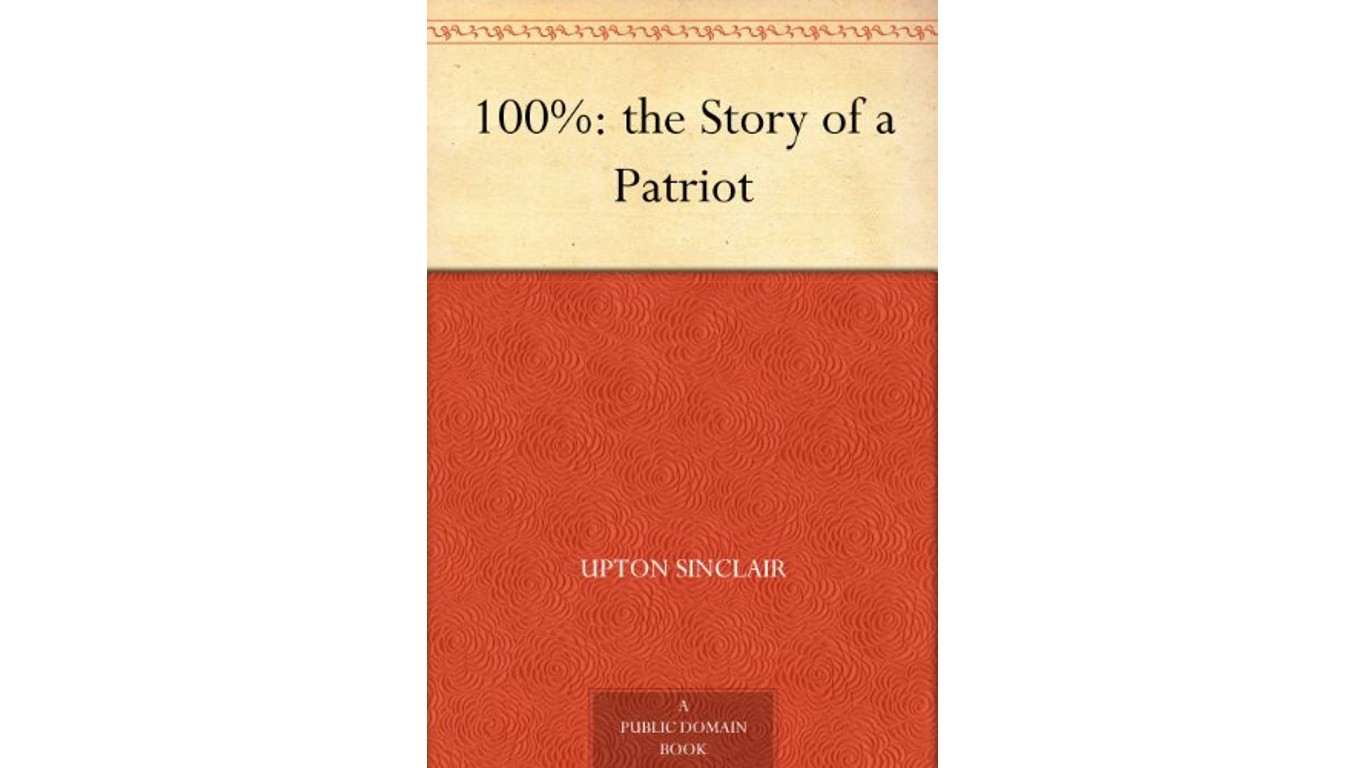
“100%: The Story of a Patriot,” by Upton Sinclair
“100%: The Story of a Patriot” is a self-published book released by Sinclair in 1920. It centers around Peter Gudge, a streetwise, uneducated lower-class young man living in the U.S. during World War I. He becomes politicized during the first Red Scare of 1917-1920 and gets tangled up in industrial spying and sabotage. Sinclair was an outspoken socialist at the time, which made his work a target of Nazi book-burners.
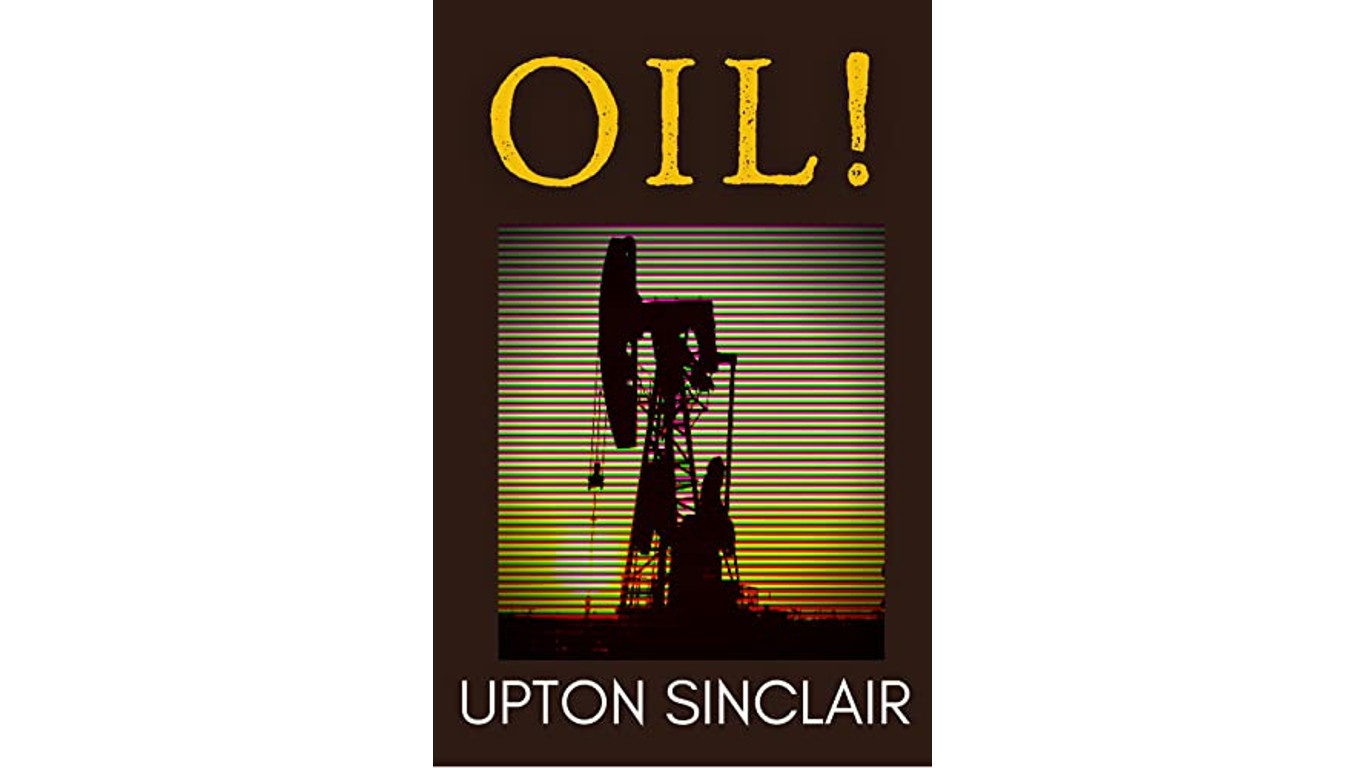
“Oil!,” by Upton Sinclair
Sinclair’s 1927 novel “Oil!” was released more than a decade after “The Jungle,” the author’s groundbreaking work of fiction about horrendous working conditions at Chicago’s stockyard, which sparked national food-safety regulations. “Oil!” takes place during California’s oil boom and centers on the relationship between a disillusioned Bunny Ross and his father, a ruthless oilman. The novel loosely inspired “There Will Be Blood,” the 2007 epic film by Paul Thomas Anderson. Sinclair was one of the most targeted American authors during the Nazi book burnings.
[in-text-ad]
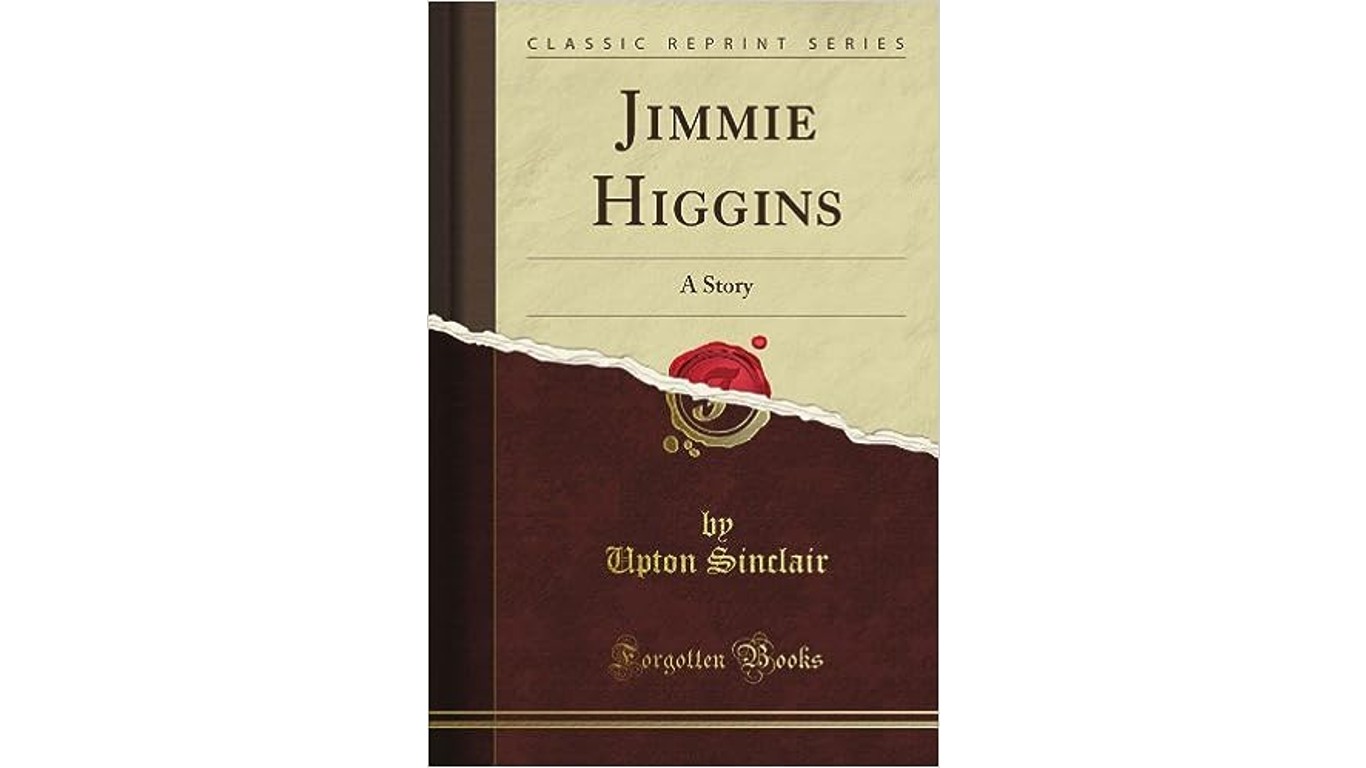
“Jimmie Higgins: A Story,” by Upton Sinclair
Sinclair was an avowed anti-war socialist, which made him one of the most targeted American authors by the Third Reich. “Jimmie Higgins” (1919) was Sinclair’s response to World War I and includes a message opposing German militarism. Sinclair broke with the American Socialist Party’s non-interventionist stance, supporting U.S. intervention in the Great War.
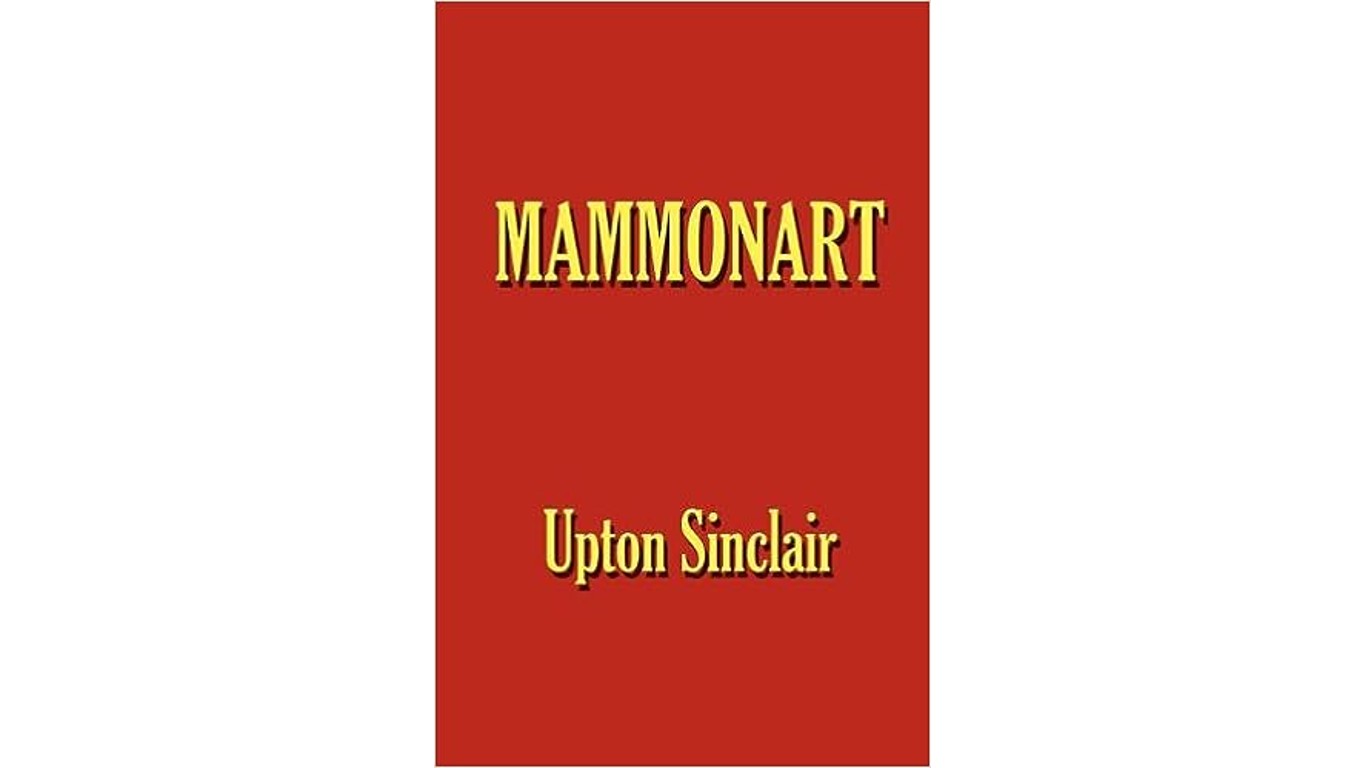
“Mammonart,” by Upton Sinclair
Another volume in Sinclair’s “Dead Hand” series, “Mammonart” (1925) is a work of literary criticism covering a broad swath of Western literature, from Homer to Voltaire to Oscar Wilde (with a handful of visual artists and composers added). In it, Sinclair declares that “all art is propaganda.” To Sinclair, the Bohemian creed “art for art’s sake” was ridiculous; he rejected the notion that the artist’s sole intention is perfection of form. He wrote that he expected the book would be adopted as a textbook in Russia and in other nations once they had gone Socialist.
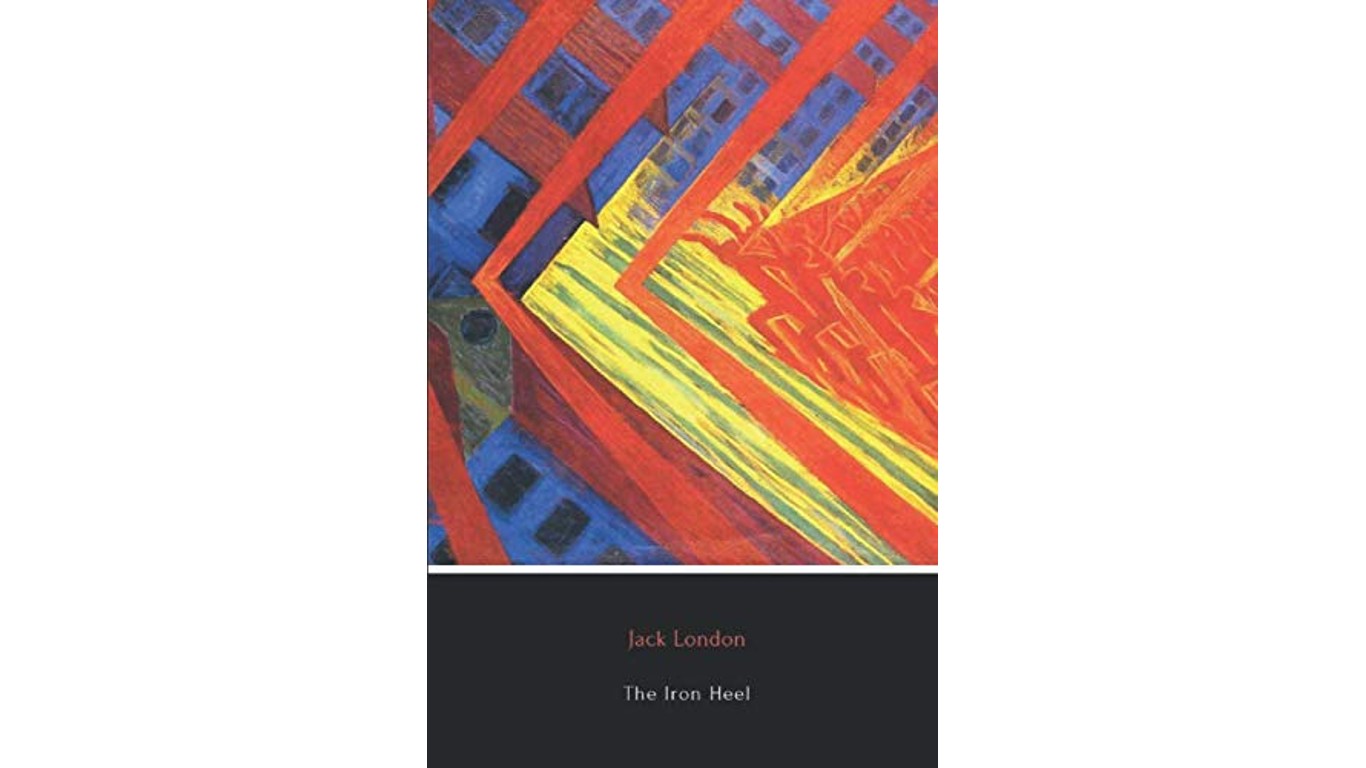
“The Iron Heel,” by Jack London
An early modern dystopian novel, “The Iron Heel” (1908) is a story set in Northern California, in a future United States ruled by a hardcore authoritarian Oligarchy that wrests power from the Socialist regime that has been voted into office. The dictators hold power for three centuries until a revolution overthrows them and establishes the Brotherhood of Man. London’s advocacy of socialism made his works anathema to the Nazis.
[in-text-ad-2]
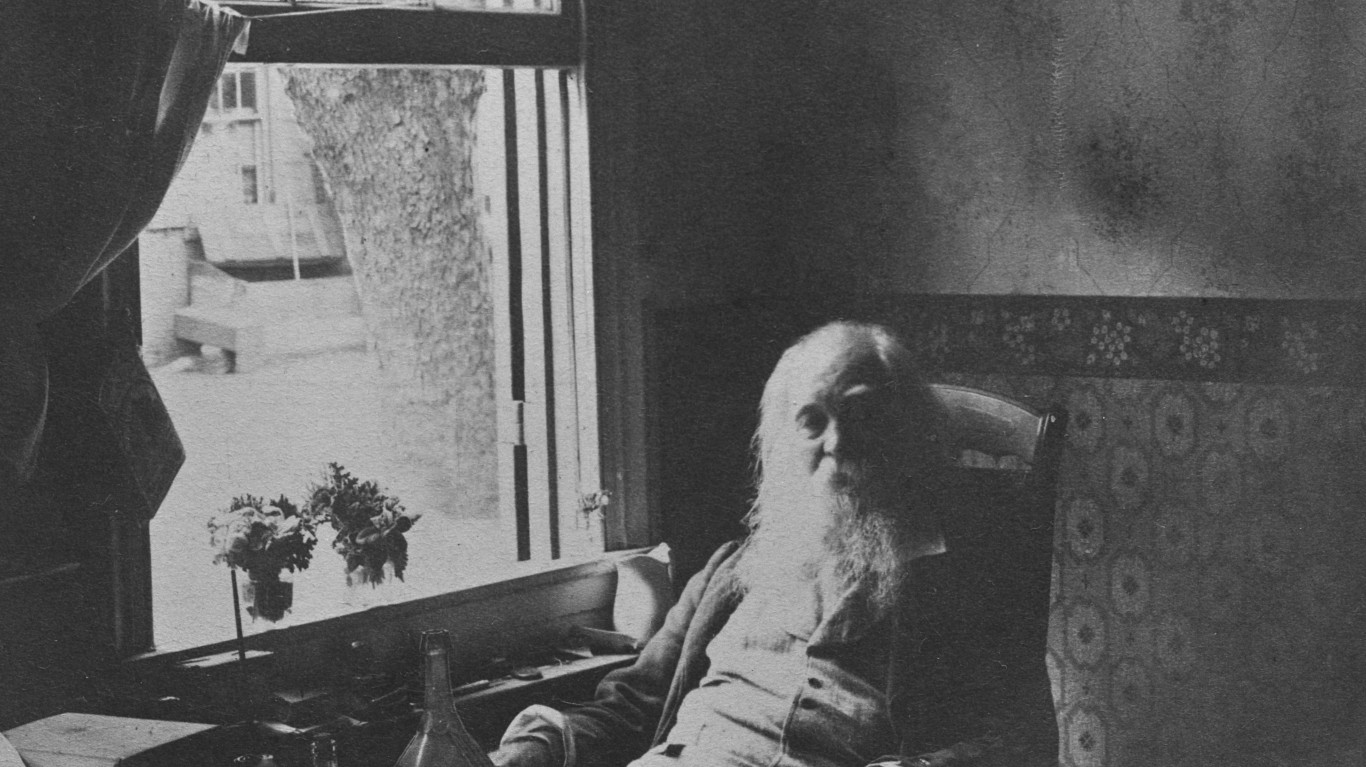
Various works by Walt Whitman
In addition to those with political or philosophical content they disagreed with, the Nazis targeted books they deemed too salacious, as they were considered to run against Germanic Aryan family values. This included Walt Whitman’s 1855 poetry collection “Leaves of Grass,” because of its references to sex, including same-sex relationships – the book was also banned from U.S. libraries during the Victorian era – as well as other Whitman titles.
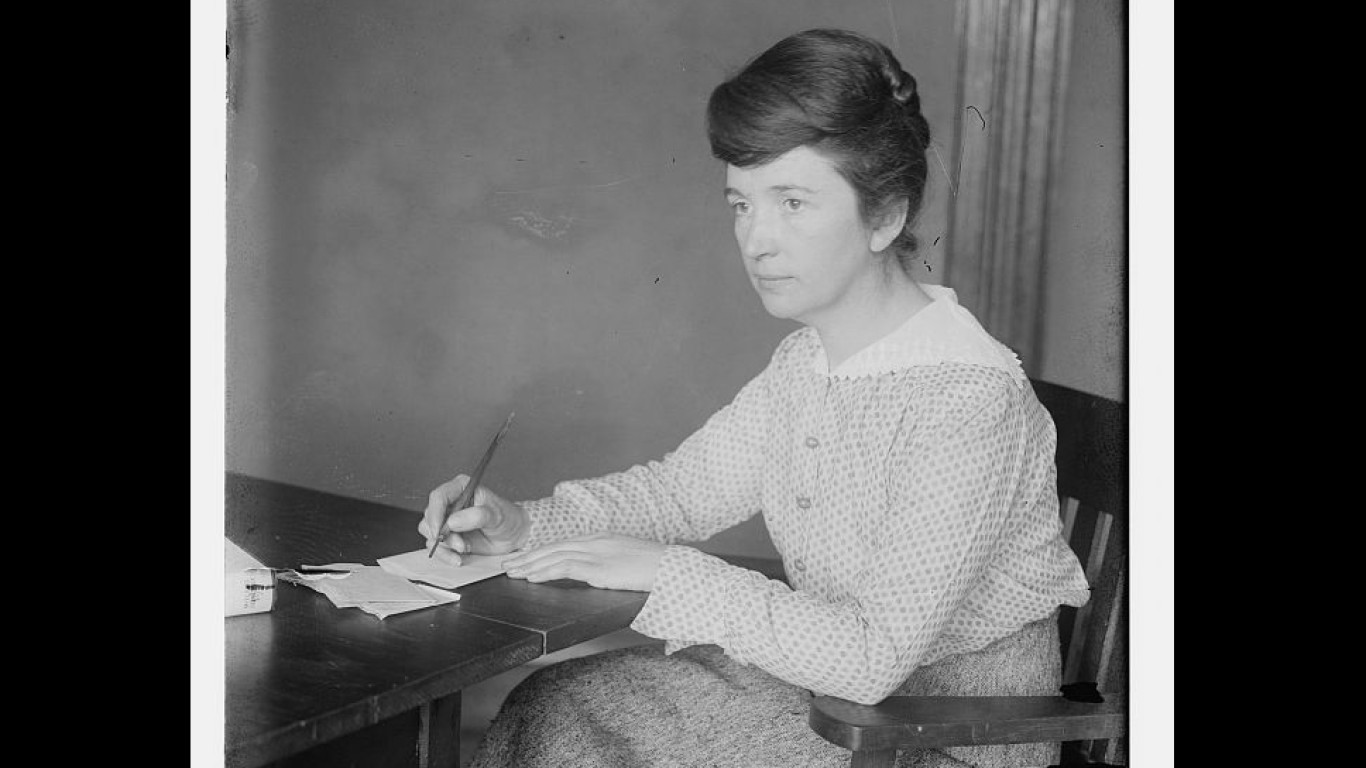
Various works by Margaret Sanger
Margaret Sanger was a 20th century American feminist, sex educator, and birth control advocate. Her works, especially her book “Woman and the New Race,” were highly influential and controversial. The Nazis targeted her work due to its focus on progressive ideas about contraception, women’s rights, and eugenics, which went against the Nazi’s racial purity ideology. Her works are still widely read today and have had a significant impact on reproductive health and rights.
[in-text-ad]
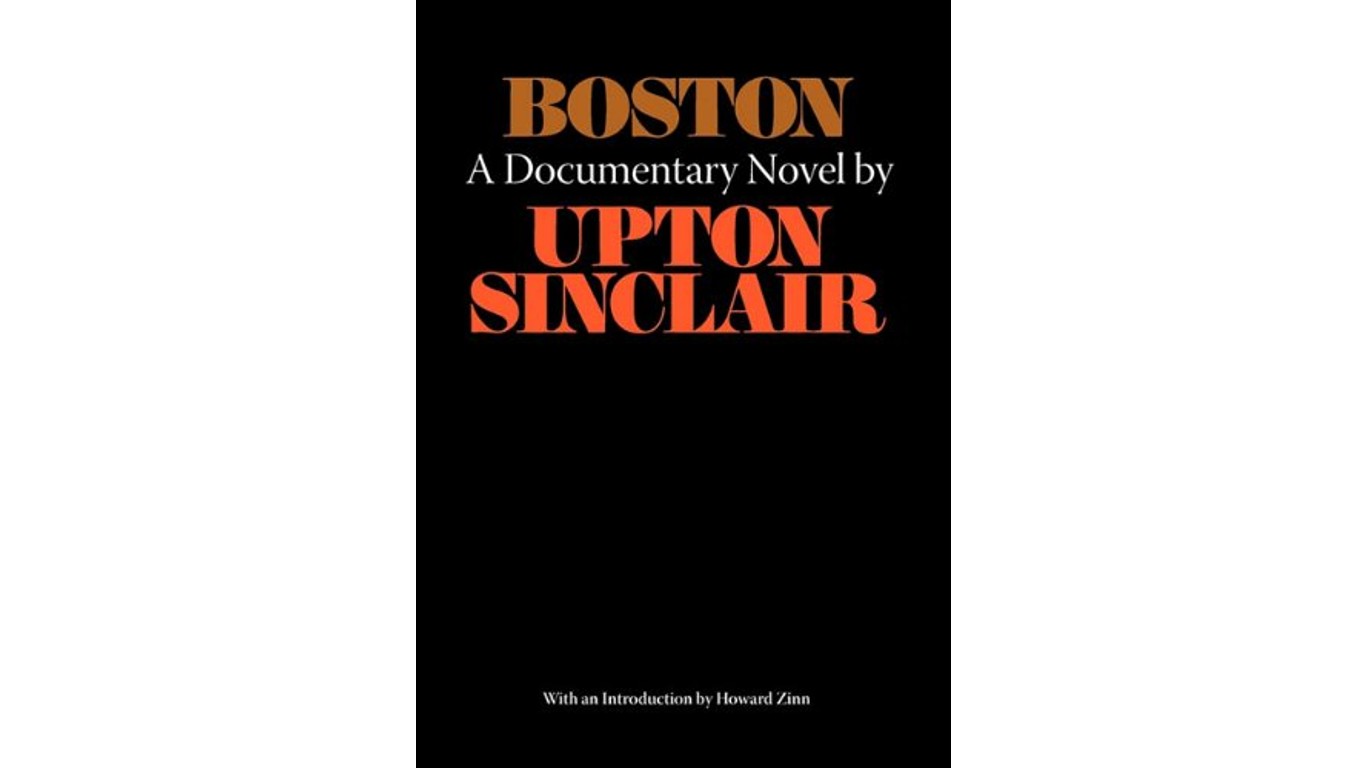
“Boston: A Documentary Novel,” by Upton Sinclair
“Boston,” published in 1928, is an accurate retelling within a fictional framework of the infamous 1920’s trial of Italian anarchists Nicola Sacco and Bartolomeo Vanzetti. The men were convicted and executed based on flimsy evidence during a climate of unrest in the wake of World War I and Russia’s Bolshevik revolution. Sinclair’s portrayal of the intense paranoid xenophobia at the time did not sit well with the Nazis, and this was one of eight Sinclair books they sent to the flames in 1933.
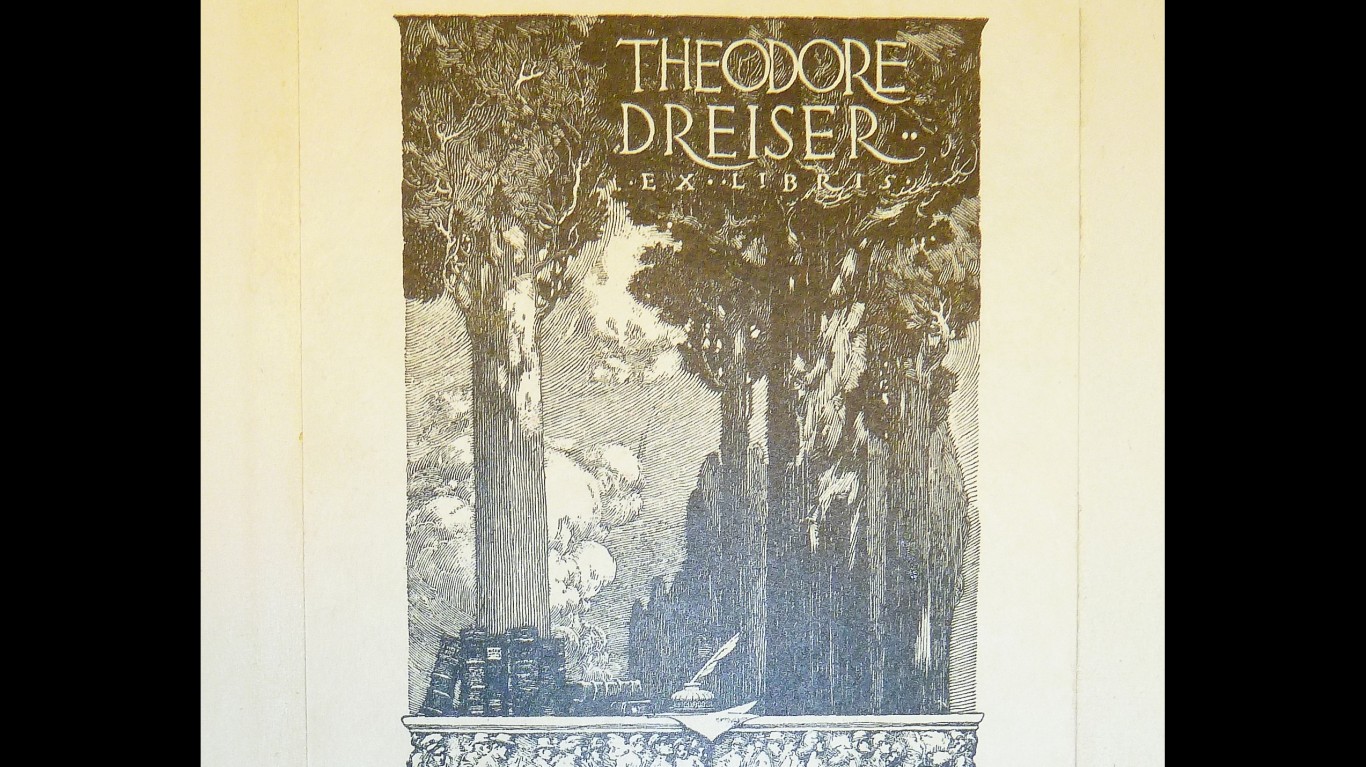
All works by Theodore Dreiser published before May 1933
As with Upton Sinclair and Walt Whitman, the Nazis targeted the body of work by Theodore Dreiser for his interest in socialism and communism as well as their perceived amoral content, which also earned it the ire of U.S. censors. The American Library Association says Dreiser’s “An American Tragedy” in particular was targeted by the Nazis book burners in 1933 because it, in the words of Nazi censors, “deals with low love affairs.”
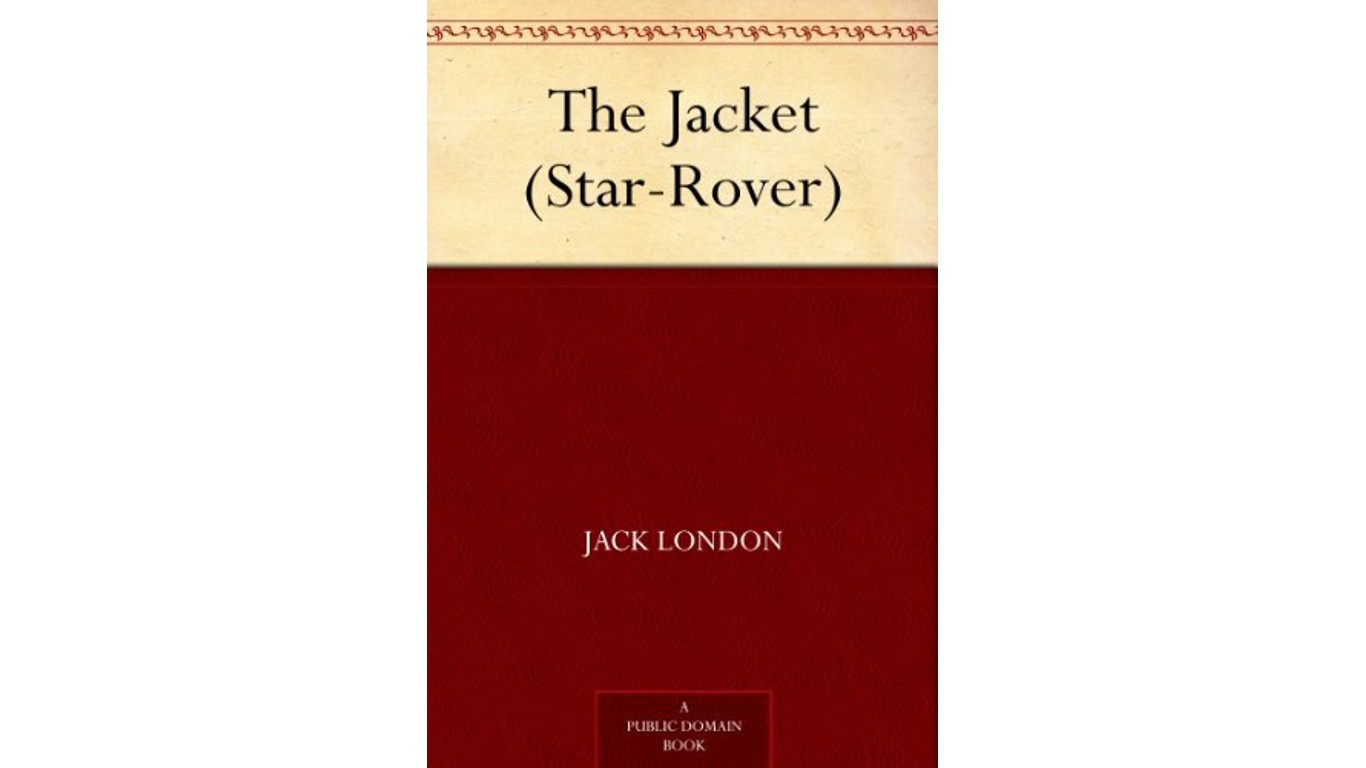
“The Star Rover,” by Jack London
Published in 1915, “The Star Rover” (sold in the UK as “The Jacket”) is a collection of short stories centered around the idea of reincarnation and the horrid conditions of prison life. The stories emanate from the mind of fictional former college professor and death-row inmate Darrell Standing, who escapes his suffering in dreams of past lives. London’s vocal support for unionization and socialism made him a Nazi target.
[in-text-ad-2]
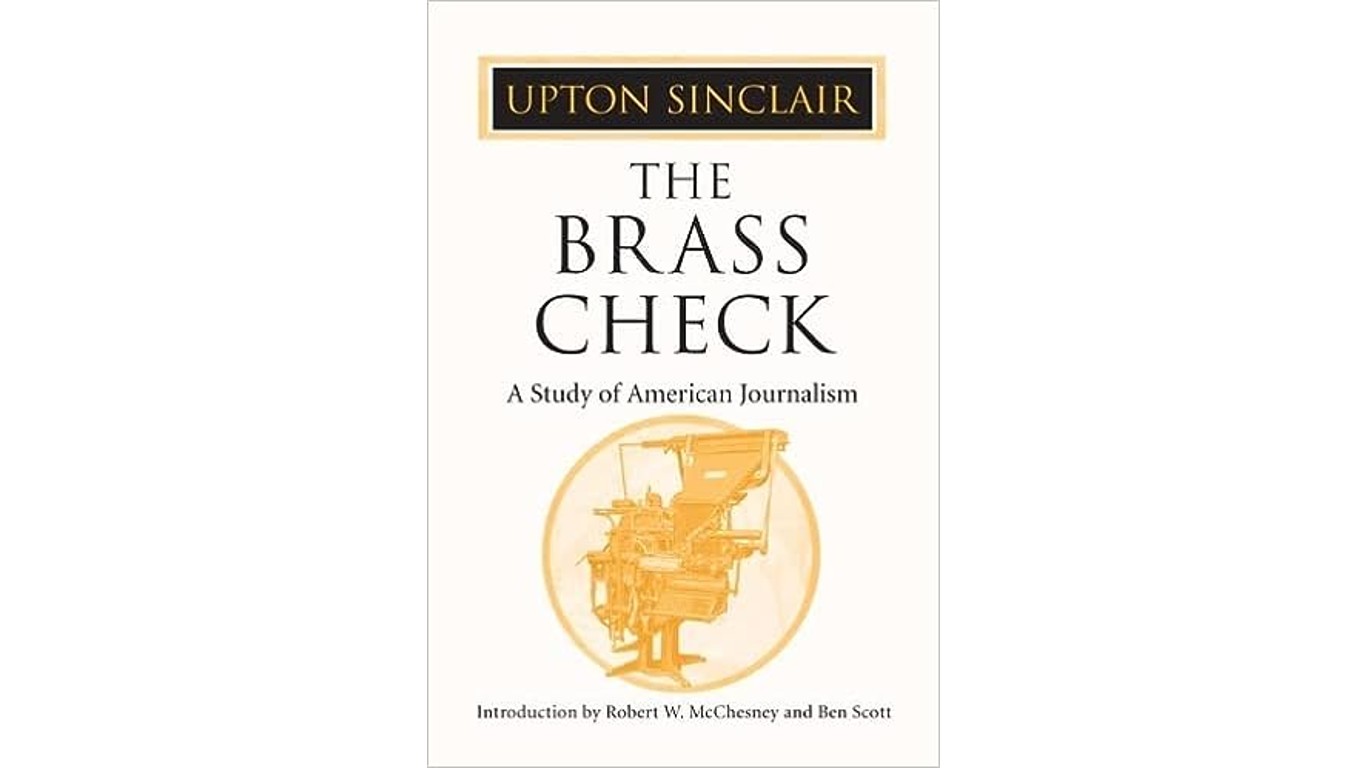
“The Brass Check,” by Upton Sinclair
Another of Sinclair’s “Dead Hand” series of books on American institutions, “The Brass Check” is an early critique of U.S. journalism, in which Sinclair posits (an argument that that might ring familiar to people today) that the media “is a class institution serving the rich and spurning the poor.” Sinclair aimed his literary guns at William Randolph Hearst, the Rupert Murdoch of his time. The book may have been targeted due to Sinclair’s criticism of media manipulation and censorship – key tools of the Nazi regime – as well as for his overall support of socialism.
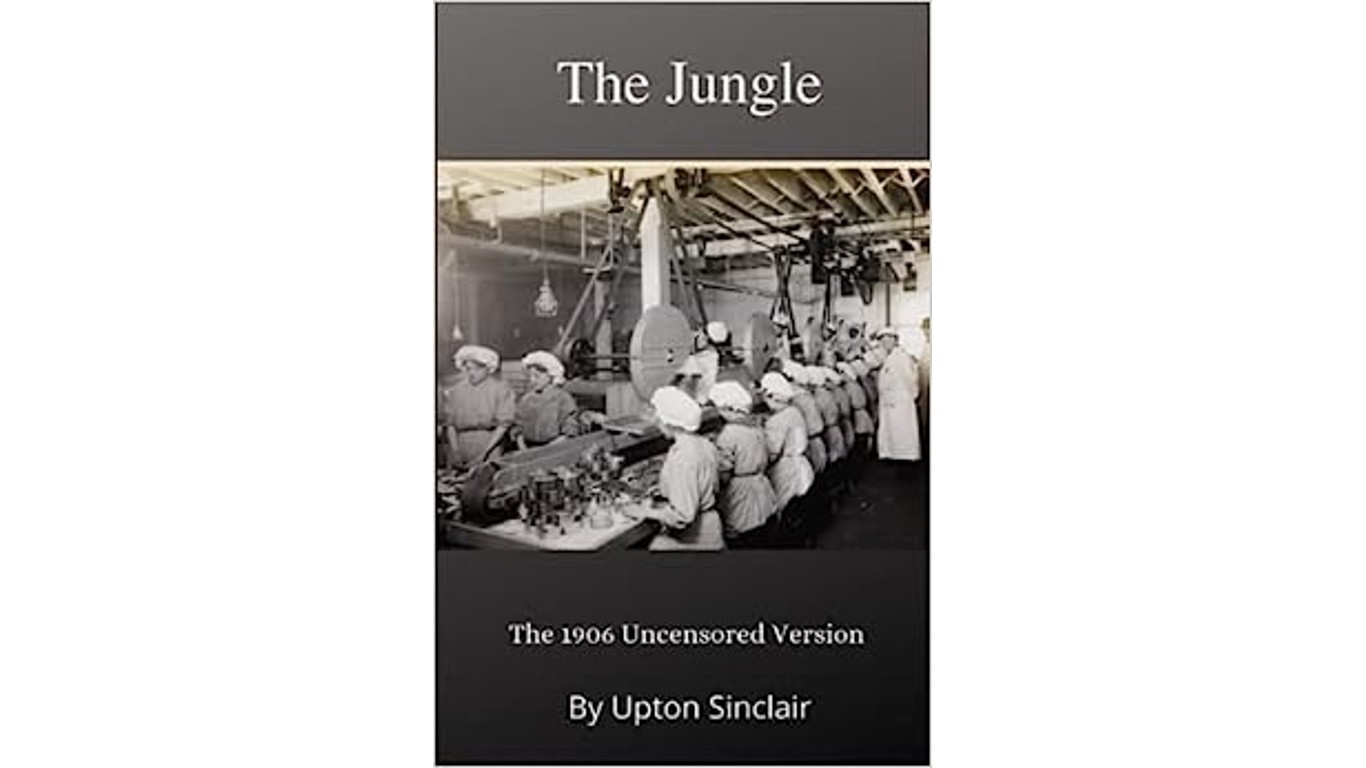
“The Jungle,” by Upton Sinclair
This 1906 Sinclair novel exposed shocking conditions in the U.S. meatpacking industry, spurring public outrage that contributed to the passage of the Meat Inspection Act and the Pure Food and Drug Act. The book outraged the Nazis not only because of the author’s socialist views but because “The Jungle” advocated for workers’ writes and, contrary to German anti-immigrant sentiment, sympathetically portrayed its Lithuanian and Polish immigrant characters.
[in-text-ad]
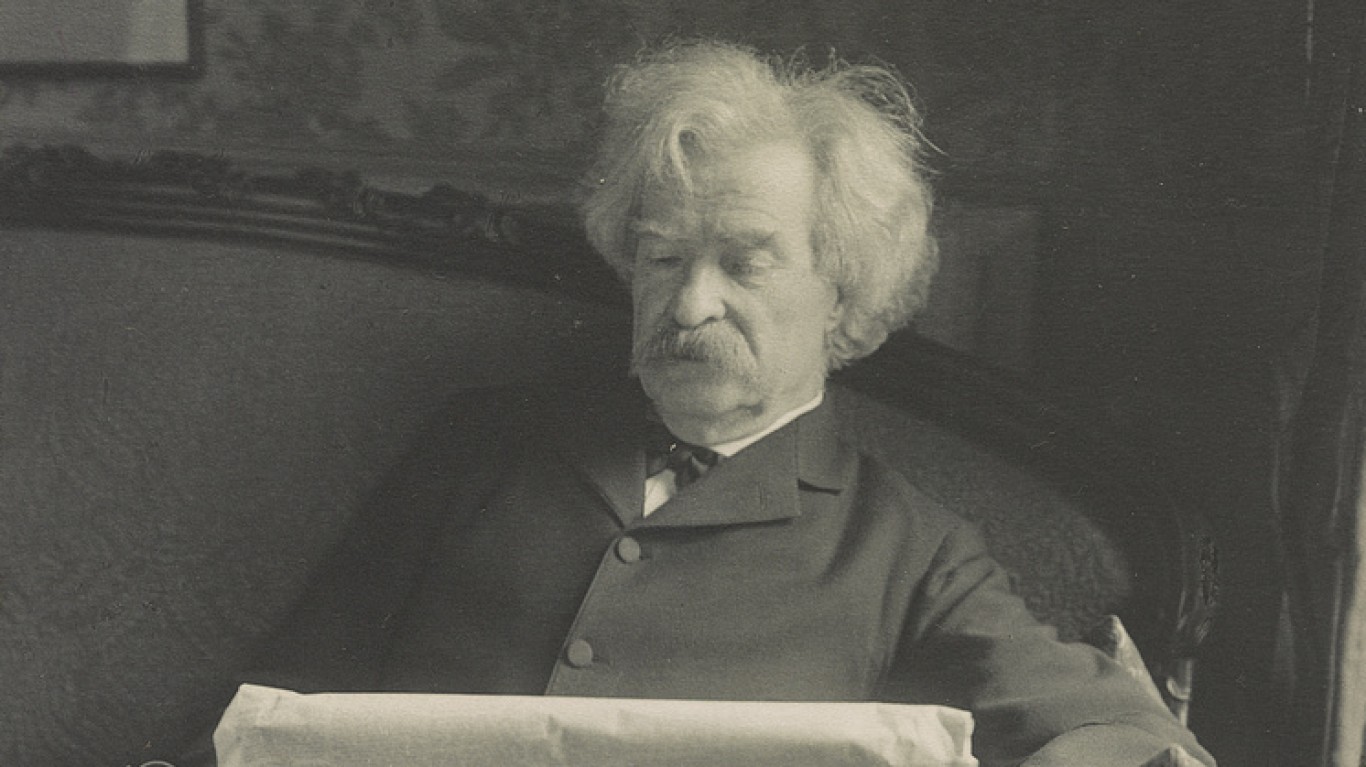
Various works by Mark Twain
One of the most renowned American authors of the 19th century, Twain was considered thoroughly “un-German” by the Nazis, according to the University Libraries at the University of North Carolina at Chapel Hill. Twain was an outspoken anti-authoritarian and war critic in essays he wrote later in life. One essay about the Austro-Hungarian Empire included a description of aggressive German political opposition to a legislative vote, depicting “bronzed and stalwart men marching in double file down the floor of the House â a free parliament profaned by an invasion of brute force.” This anti-fascist messaging made Twain a pariah in Nazi Germany.
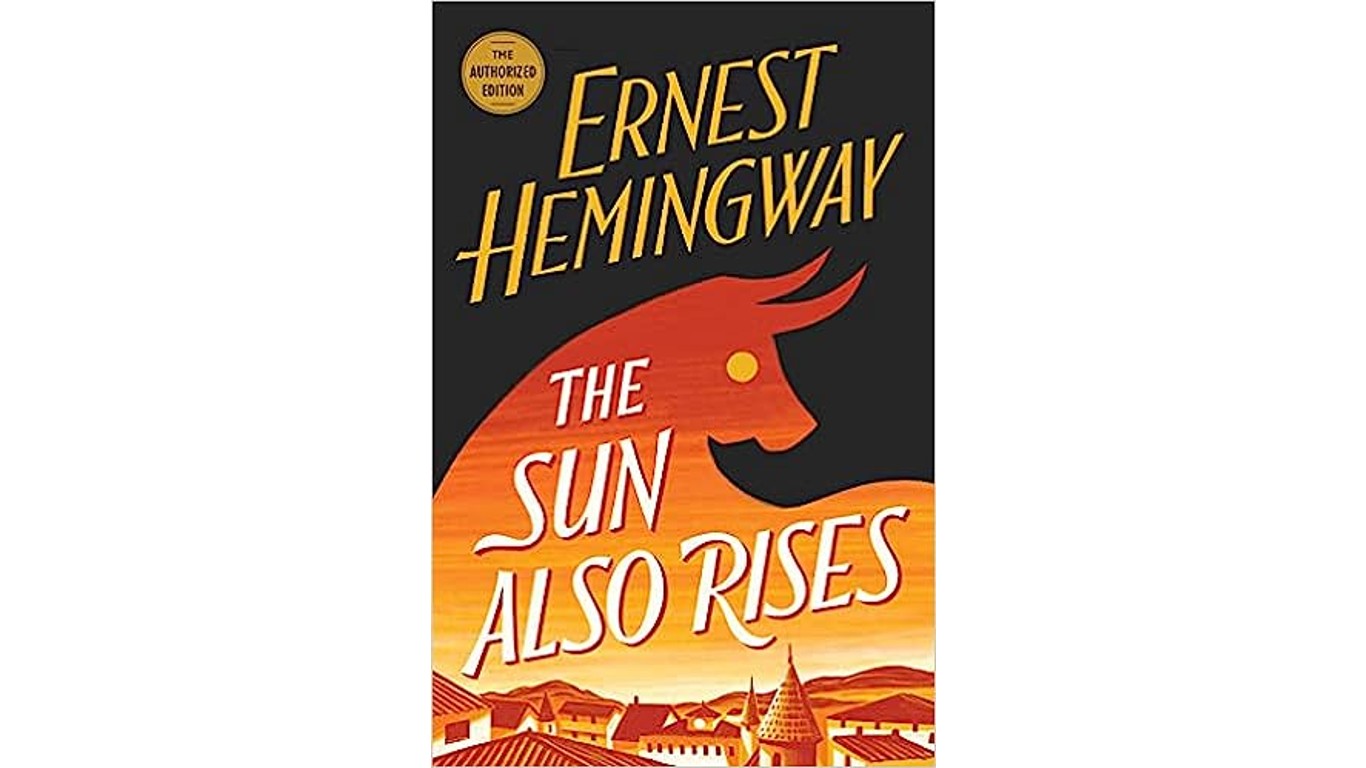
“The Sun Also Rises,” by Ernest Hemingway
Hemingway’s frank depictions of war’s brutality, his support for leftist anti-fascist Republicans during the Spanish Civil War, and the implied sexual content in his work, led the Nazis to target this famous American author. In particular, it is possible that “The Sun Also Rises” was condemned because of its portrayal of disillusioned young people, which could have been seen as a threat to the Nazi ideology of national strength.
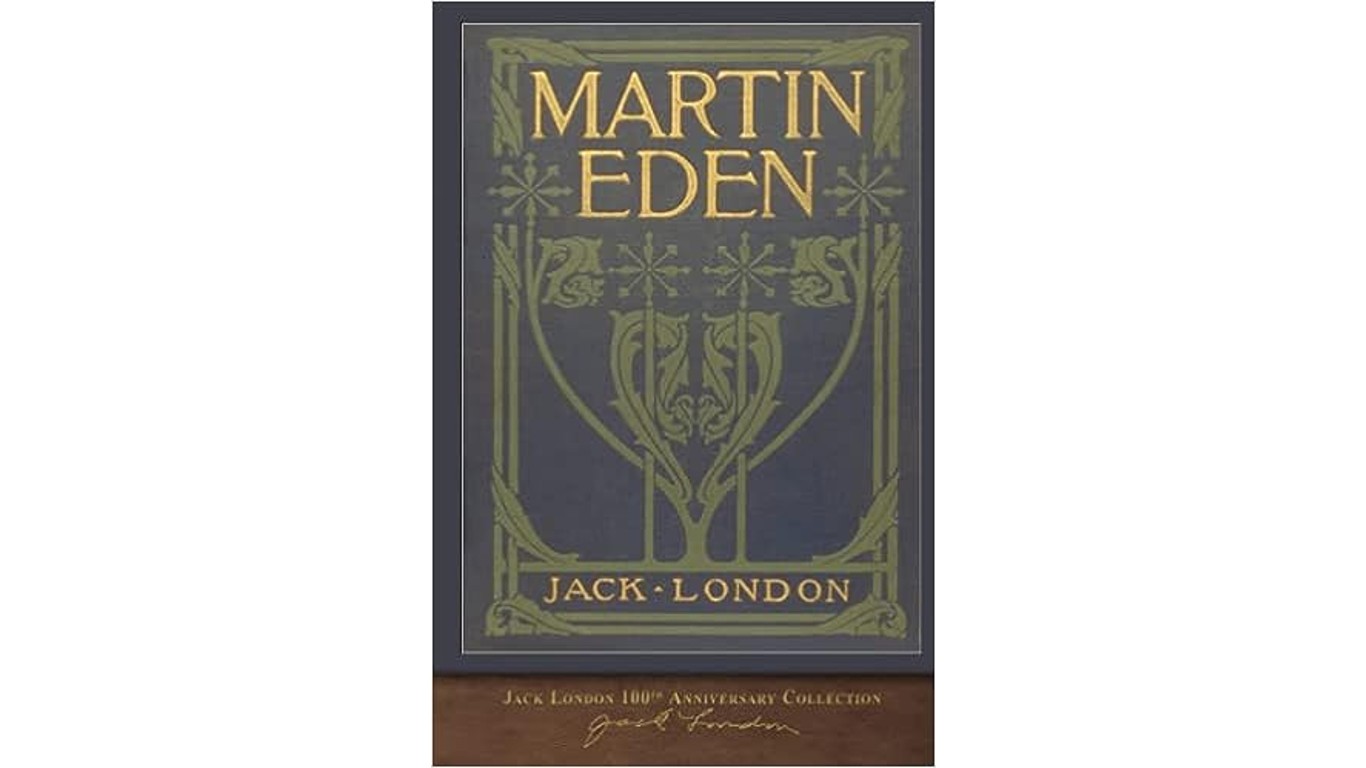
“Martin Eden,” by Jack London
Published in 1908, this semi-autobiographical novel is about a poor but educated seaman who obsessively pursues literary fame. “Martin Eden” is considered by critics to be London’s attack on individualism and ambition. As with two other London books,”The Star Rover” and “The Iron Heel,” this book was condemned by the Nazis for its collectivist undertones.
Cash Back Credit Cards Have Never Been This Good
Credit card companies are at war, handing out free rewards and benefits to win the best customers. A good cash back card can be worth thousands of dollars a year in free money, not to mention other perks like travel, insurance, and access to fancy lounges. See our top picks for the best credit cards today. You won’t want to miss some of these offers.
Flywheel Publishing has partnered with CardRatings for our coverage of credit card products. Flywheel Publishing and CardRatings may receive a commission from card issuers.
Thank you for reading! Have some feedback for us?
Contact the 24/7 Wall St. editorial team.
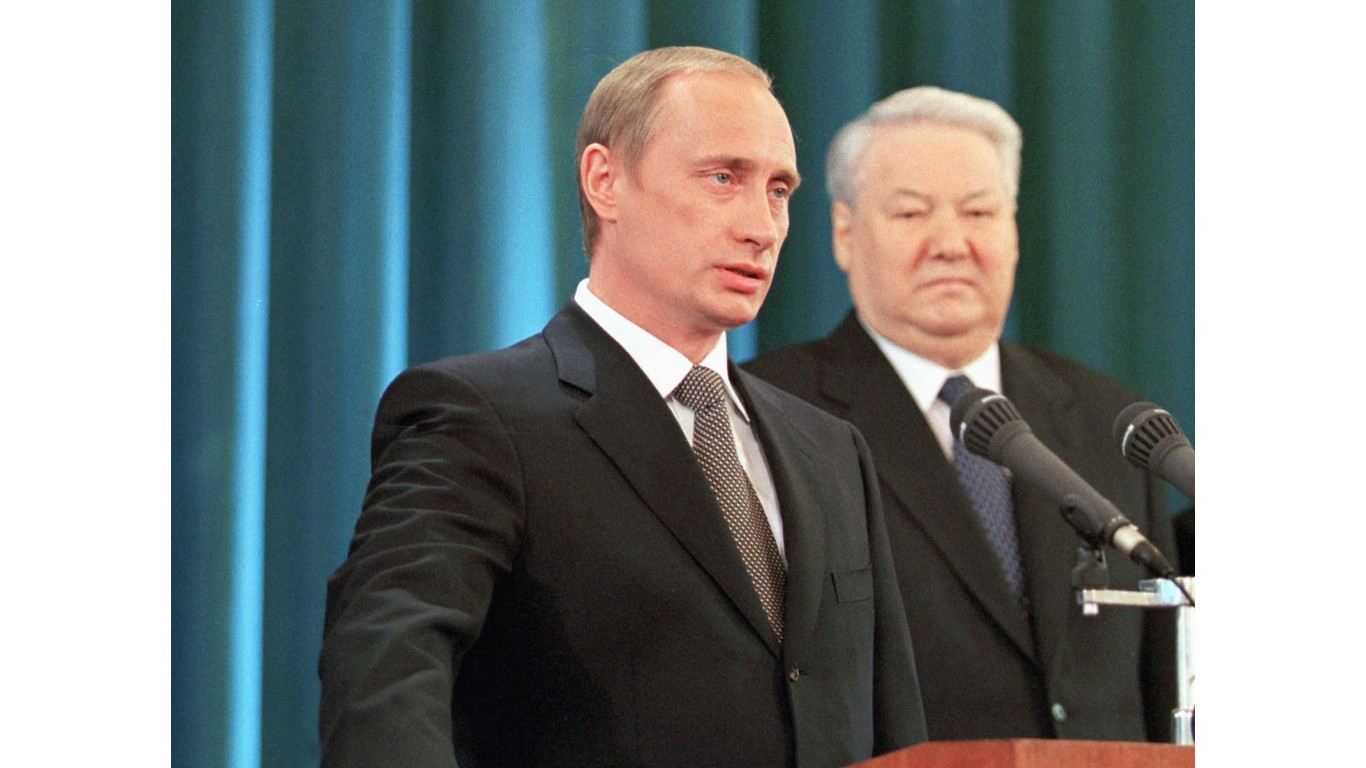 24/7 Wall St.
24/7 Wall St. 24/7 Wall St.
24/7 Wall St.